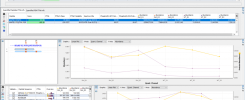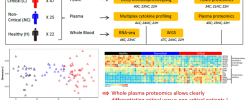Host cell proteins (HCPs) are a major class of bioprocess-related impurities generated by the host organism and are generally present at low levels in purified biopharmaceutical products. The monitoring of these impurities is identified as an important critical quality attribute of monoclonal antibody (mAb) formulations not only due to the potential risk for the product stability and efficacy but also concerns linked to the immunogenicity of some of them.
While offering a promising alternative to ELISA methods, their characterization using LC-MS/MS methodes represents a major analytical challenge due an extreme dynamic range and sensitivity required to detect trace-level HCPs.
In this context, we developed powerful and reproducible workflows coupling optimized and efficient sample preparations, the library-free data-independent acquisition (DIA) method, and stringent validation criteria, thouroughly evaluated on a series of four commercially available drug products. Overall, a final global HCP amount of a few tens of ng/mg mAb in these mAb samples was measured, while reaching a sensitivity down to the sub-ng/mg mAb level. Thus, this straightforward and robust approach can be intended as a routine quality control for any drug product analysis.
Pythoud, N., et al. (2021). “Optimized Sample Preparation and Data Processing of Data-Independent Acquisition Methods for the Robust Quantification of Trace-Level Host Cell Protein Impurities in Antibody Drug Products.” J Proteome Res 20(1): 923-931.


